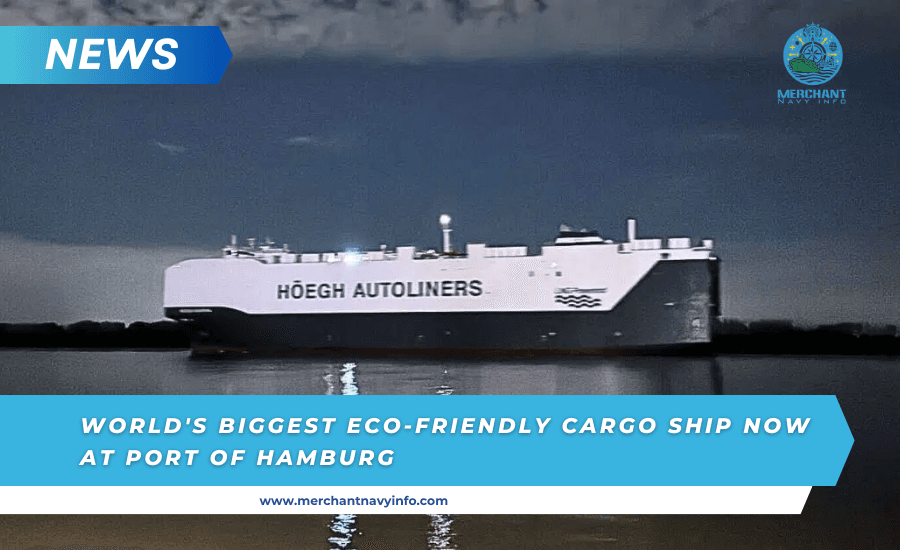
The world’s largest and most eco-friendly cargo ship docks at the Port of Hamburg, Germany
The world’s largest and most eco-friendly cargo ship, the Hoegh Aurora, will visit the Port of Hamburg to confirm the Hamburg declaration on the decarbonization of global shipping.
The Hoegh Aurora loaded cargo in Japan and South Korea before setting sail for Europe. Before arriving in Hamburg, Germany, she visited many ports in Belgium, the United Kingdom, France, Sweden, and other countries.
At the Port of Hamburg, Germany’s largest port and Europe’s third largest, the company will organize a large event for many customers and partners to celebrate a step towards environmentally friendly shipping.
The ship can accommodate 9,100 cars and park electric vehicles on 14 decks. The top floor has solar panels that can reduce generator power generation by more than 30%. The ship can also use electricity on land, eliminating emissions when docked in the port.
This is the first ship of the Hoegh Autoliners Aurora class, including 12 ships. Two vessels, the Hoegh Aurora and the Hoegh Borealis, are in operation, and ten more are to be delivered by 2028.
The vessels will be equipped with engines fuelled by ammonia, reducing greenhouse gas emissions by up to 58% per transported vehicle compared to the current industry average.
Hoegh Autoliners operates the most sustainable fleet of car and truck carriers and aims to reduce carbon emissions with its Aurora class vessels.
In addition, with this class, the company is increasing demand for ammonia as a carbon-neutral marine fuel.
The company is working with many of the world’s largest ammonia-producing companies, including Yara Clean Ammonia, Sumitomo, Norwegian North Ammonia, and others, to secure the supply of green ammonia.
The company aims to have at least 100,000 tonnes of green ammonia on board its vessels by 2030.









